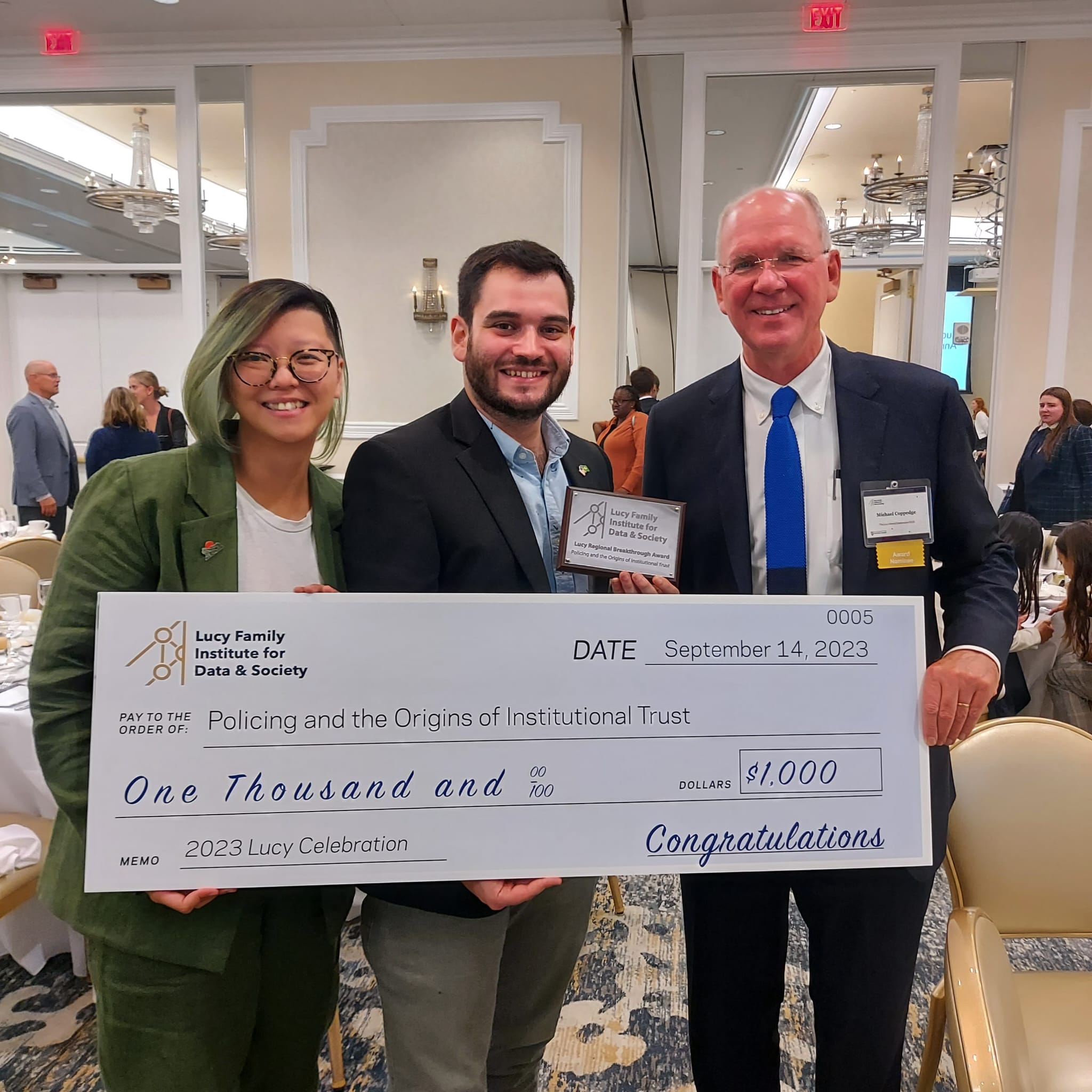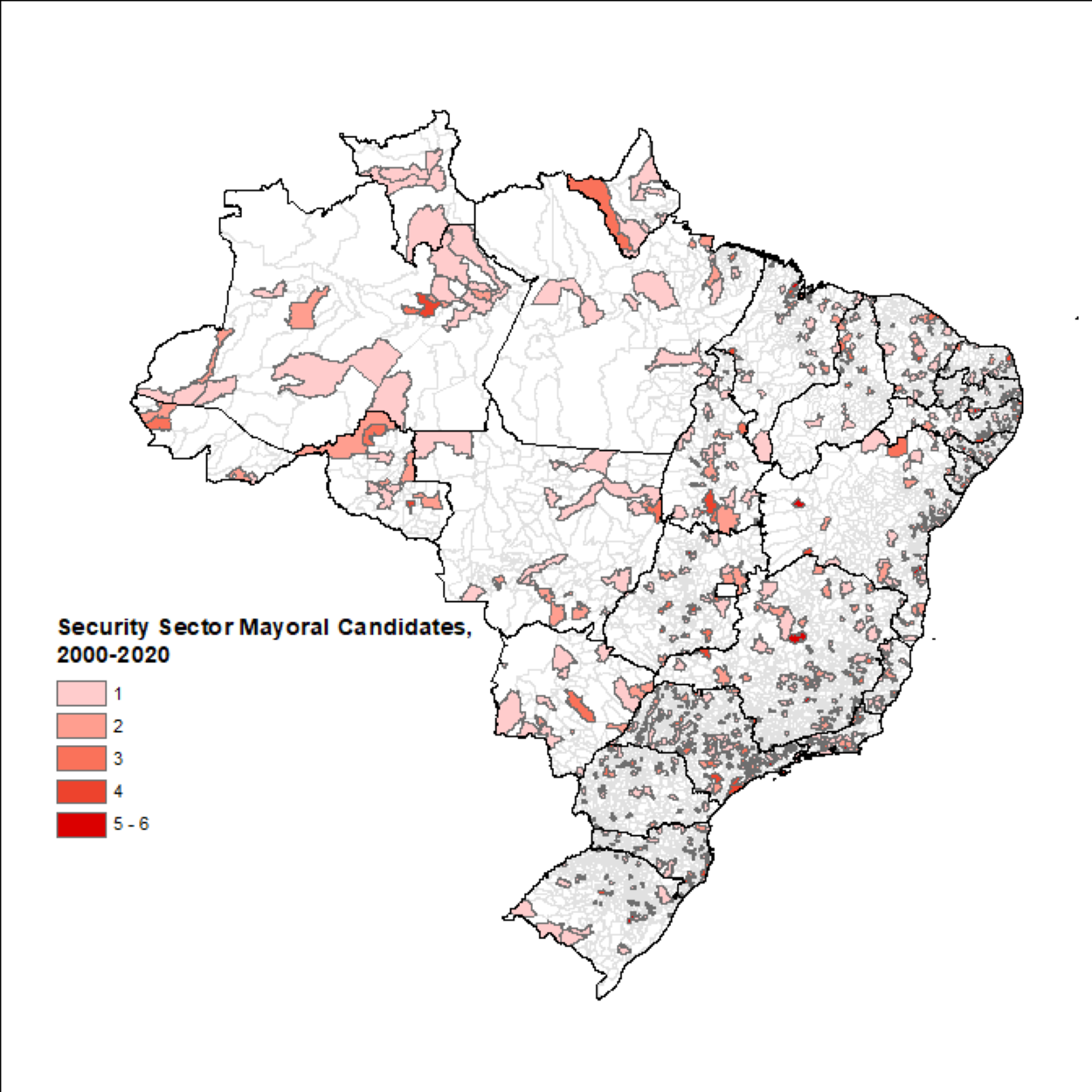
Research
My work investigates the police and public security policies in the context of democratic regimes including the participation of police officers in electoral politics and the impact of police interactions on citizen attitudes and behaviors. While my regional focus is Latin America, specifically Brazil, I have works in progress focused in the United States as well.
My research has been generously funded by an APSA Doctoral Dissertation Research Improvement Grant (DDRIG) and a Fulbright Study/Research Grant, as well as internal grants from the Hellen Kellogg Institute for International Studies and The Institute for Scholarship in the Liberal Arts. My work has appeared in Party Politics, Political Research Quarterly, Urban Affairs Review, and Latin American Politics and Society, among others.
Publications
Peer Reviewed Journal Articles
- Turner, Jacob R. “The People's Captain: Understanding Police Officers as an Electoral Brand". Political Research Quarterly doi: 10.1177/10659129241253204.
- Turner, Jacob R. and Maggie Shum. 2024. “How Citizens Meet the State: Police Contact, Trust, and Civic Engagement". Urban Affairs Review doi: 10.1177/10780874241241228
- Vilaça, Luiz and Jacob R. Turner. 2024. “The New Corruption Crusaders: Security-Sector Ties as an Anti-Corruption Voting Heuristic”. Latin American Politics and Society doi: 10.1017/lap.2023.39
- Silva, Diego R. de Moraes, and Jacob R. Turner. 2023. “Assessing the Impact of Covid-19 on Support for Democracy in Brazil: A Panel Study.” Revista de Sociologia e Política 31. doi: 10.1590/1678-98732331e020.
- Turner, Jacob. 2022. "Guerrillas and Authoritarians: Partners in Post-War Polarization". Party Politics, 28:1, 163-173. doi: 10.1177/1354068820968409
- Turner, Jacob. 2020. "State Presence and Democratic Culture: A Spatial Investigation". Teoría e Pesquisa, 29:2, 159-186. doi: 10.31068/tp.29206 (Open Access)
Other Articles
- Turner, Jacob. 2023. “A V-Dem Theory of Democracy: Future Directions for Democratization Research.” Democracy and Autocracy 21:1. 29-30. https://t.co/3AqrVOXRdR
- Turner, Jacob. 2014. "Vergil and Augustus: An Imagined Dialogue on Virtue and Manhood". Agora, 23. https://digitalshowcase.lynchburg.edu/agora/vol23/iss2014/10
Working Papers
- "Worth 1000 Words? The Impact of Image-Based Treatments on Respondent Experience"
- "Violence Victimisation and Children’s Trust in Adults: Intergenerational Transmission in a Brazilian Birth Cohort Study"
- "Neighbourhood Violence, Trust, and Justice among Mothers in a Brazilian Birth Cohort"
